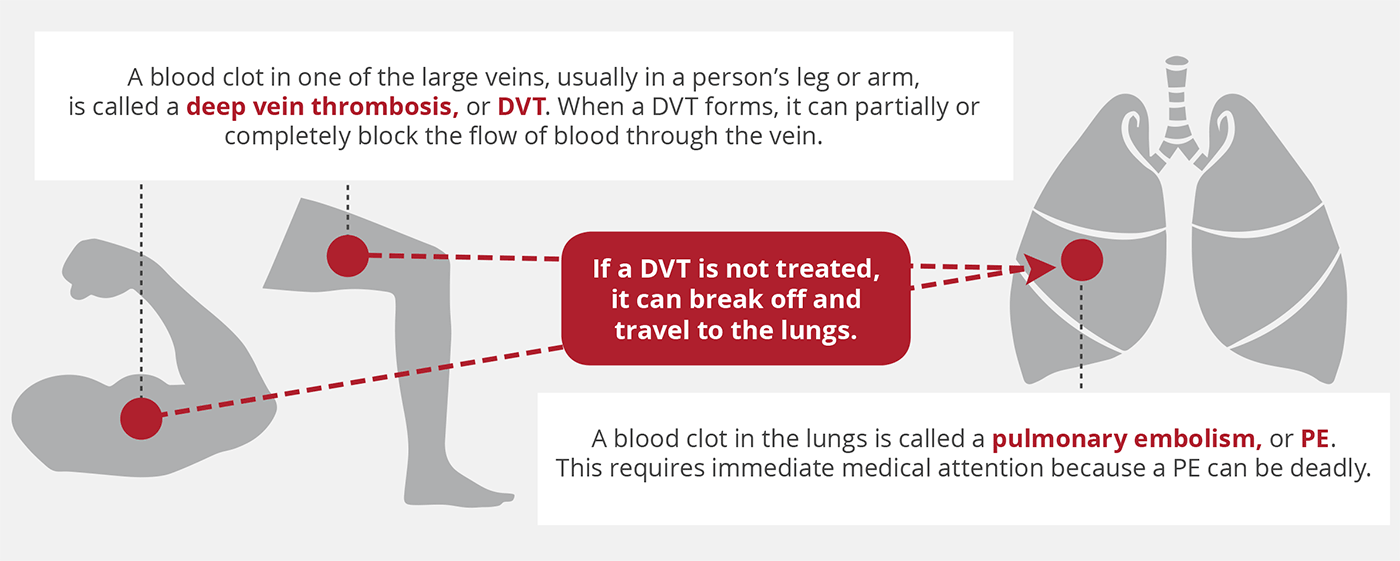WOW..Why Are Blood Clots Common After Surgery
Part of recovering after surgery includes reporting any signs or symptoms that may indicate a complication. Why theres a risk of blood clots after surgery Your blood flows too slowly through your veins When your blood flows freely it mixes with naturally occurring anticoagulants in your blood that help keep it from clotting and keep it flowing smoothly.

Blood Clots Symptoms Risks When To Call A Doctor And More
The rare risk of blood clots associated with the AstraZeneca vaccine are now well known but last week concerns started to emerge about Pfizer.
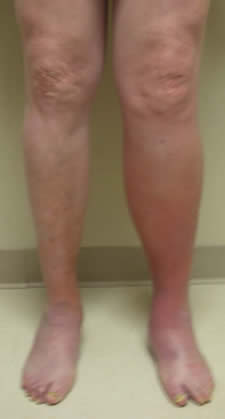
Why are blood clots common after surgery. A 40-year-old police sergeant from Brisbane made headlines after he developed a blood clot on Wednesday just three days after receiving the mRNA vaccine. So the hemostasis of the human body is maintained by forming blood clots eg during wound healing. Blood clot in lungs is referred as pulmonary embolism in medical terminology.
Though blood clots are natural to form up to a certain extent too much of them can pose a problem and complicate your health condition in various ways. Patient based factors listed below can also predispose them to blood clots. Blood clot in lungs after surgery is not uncommon.
The most common reason behind the formation of blood clots post-surgery is inactivity. Blood clot formation also known as coagulation is your bodys normal response in certain situations. It is one of the most dreaded complications after major surgery especially surgery of pelvis knee and hip joint.
You are the most at risk after surgery for up to three months. In the last 15 years I have been personally consulted by surgeons many times to treat a blood clot in the lungs after surgery. Furthermore it is important to note any leg pain.
A blood clot in the lungs after surgery is a relatively common but serious complication of surgery. One-third about 33 percent of people who are diagnosed with blood clots will have a recurrence within ten years. Whenever the body experiences an injury you can run a risk of developing blood clots as the.
Fortunately blood clots also known as deep vein thrombosis or DVT are rare after spinal surgery and are certainly much less common than after other common surgeries such as hip and knee replacement. Blood clots are indeed among those serious risks of back surgery. Blood clots after surgery can become life-threatening especially if the blood clot travels to the lungs.
Taking steps for the prevention and treatment of blood clots after hip and knee replacement surgery is an important part of your recovery. This condition is called deep vein thrombosis. This article will explain about the signs of blood clots after surgery so that you can identify the problem and look for treatment as soon as.
Surgery is one of the major causes of deep vein thrombosis a blood clot that forms in the deep veins of your body often in your leg. Even after ten days you are still at risk though. In the days and weeks after surgery you have a higher chance of developing a deep vein thrombosis DVT.
Preventing Deep Vein Thrombosis After Surgery. Joint replacement patients are at highest risk for developing a DVT two to 10 days after surgery and remain at risk for approximately three months. The same can be said after an operation where patients cant be as active because of the physical trauma of an.
In this lesson learn what symptoms may indicate a. This will lead to the accumulation of blood in the lower part of. Clots are often associated with surgery where the person is lying still during the procedure and potentially for many hours after the surgery is over but can also form when an individual is still.
This type of clot forms in the legs and typically happens after the blood flow in the legs is reduced. However some surgeries still have increased risk factors for blood clots. Risks After Having Surgery.
But a DVT may develop in an arm or another deep vein in the body. Prevention and Treatment of Blood Clots after Hip and Knee Replacement Surgery. I am writing this article based on my personal experience as well as a review of all relevant medical research articles.
This is a condition in which a blood clot or thrombus develops in a deep vein. Blood clots after orthopedic surgery are more likely to occur after major procedures like hip or knee replacements compared to arthroscopic procedures. Blood Clots in Orthopedic Surgery Fact Sheet.
Long procedures where you are inactive can allow your blood to pool providing an ideal environment for the formation of a clot. Why Blood Clots Develop After Surgery. But sometimes such a phenomenon has a negative impact on the bodys functioning.
For example if you. Usually the cause is transient fluid overload or third-spacing of fluid because of the stress of surgery. Why Would You Develop Blood Clots After Surgery.
The thrombus is formed as a result of activation of the blood coagulation system. Leg swelling after surgery is common. This means you should remember to keep moving as much as.
Depending on the size of the clot it can block the arteries in the lungs which can cause an array of health complications such as chest pain shortness of breath rapid heartbeats fainting dizziness. When youre not moving aroundlike after surgeryyour blood flow slows down and doesnt mix with those. Orthopedic surgeons performed about 520000 hip replacements and about 581000 knee replacements in 2006.
In orthopedics joint replacement surgery is becoming more common. Muscle movement plays an important role in transferring blood to the heart but the process will slow down because of your inactive lifestyle after surgery. Blood clots after surgery.
During and after the operation patients stay in bed in the same position for an extended duration. During the first 10 days post-surgery the risk of clot formation is very high but you will be at risk for the. A statement released by Queensland police on.
The clot usually develops in deep veins of lower leg. Blood clots can develop for a couple of different reasons as a result of surgery. Deep vein thrombosis or DVT are the most common types of blood clots.
There are ways to. Also swelling in both legs is different than one leg swelling. Atlanta Bone and Joint Specialists is always reviewing the latest.
You are the highest at-risk between two and ten days after having the surgery. Formation of blood clots is a common complication arising after a surgery. As you stop moving blood circulation is compromised leading to clots.
But sometimes the cause can be more serious like a deep vein thrombosis or damage to the heart. It can lead to a fatal condition called pulmonary embolism. They are most common in the leg.
To understand why you get blood clots after surgery its worth analyzing the typology of thrombus. You are likely to develop DVT after surgery mainly because you will be inactive for quite some time. Your chances are higher for getting a blood clot after surgery.
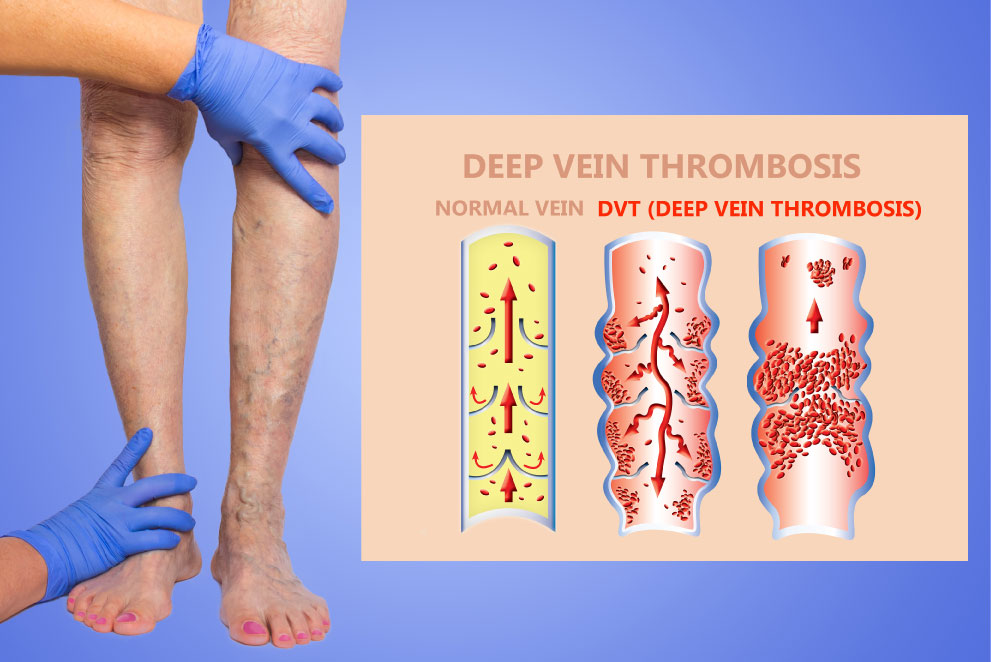
Dvt Blood Clots In Your Legs Maryland Vascular Specialists
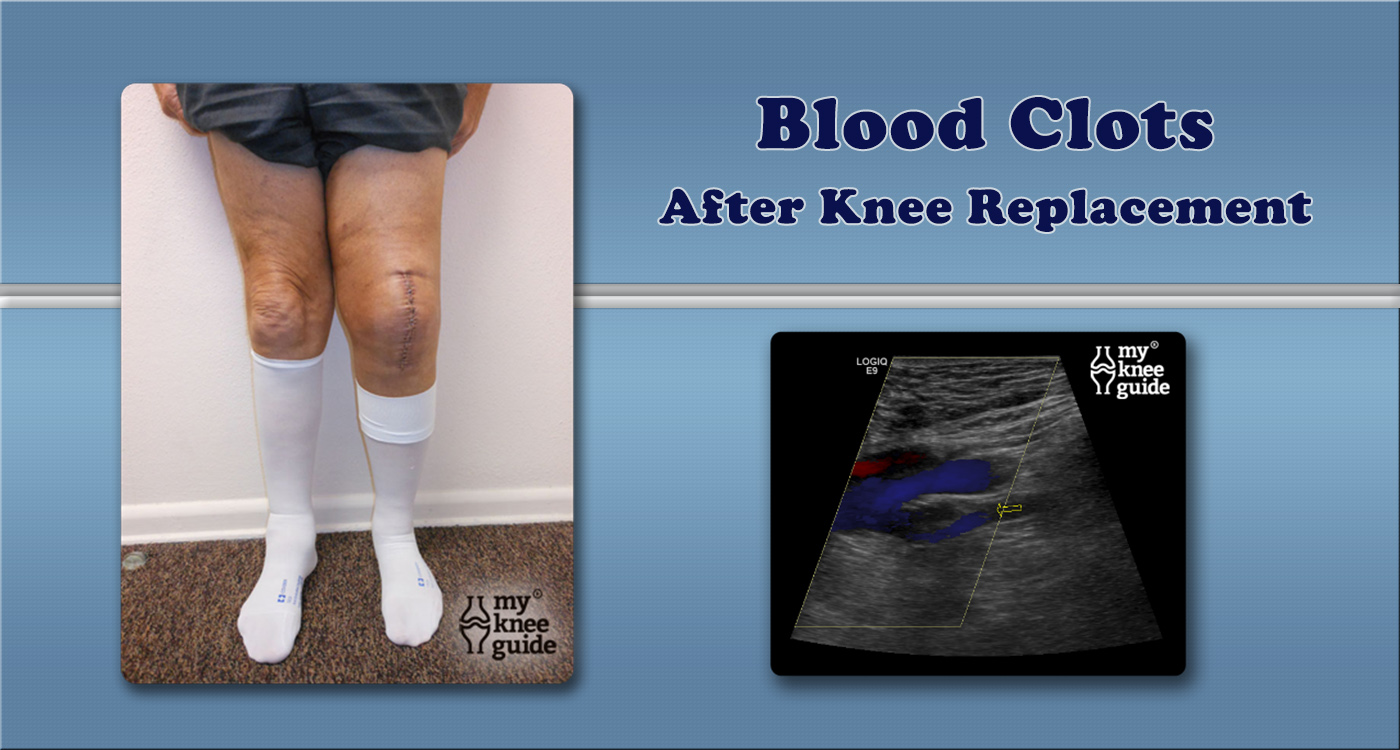
Blood Clots Also Known As A Dvt

What Do Blood Clots In The Leg Feel Like Health Topics Men S Health Pediatrics Women S Health Hackensack Meridian Health
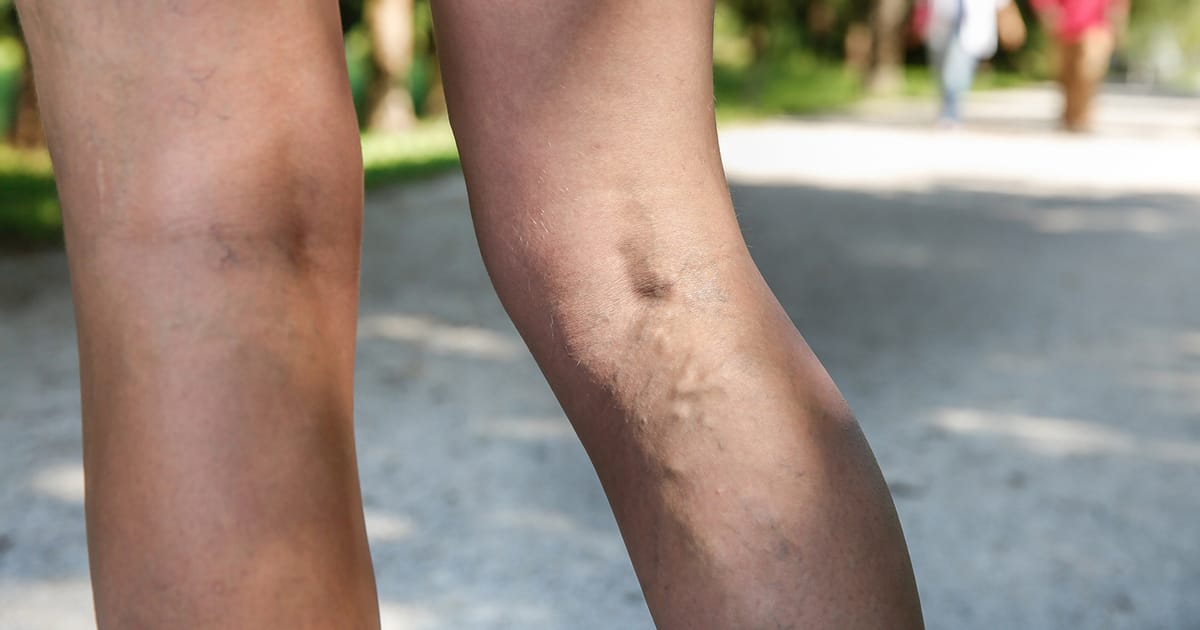
Varicose Veins And Blood Clots In Your Leg The Iowa Clinic
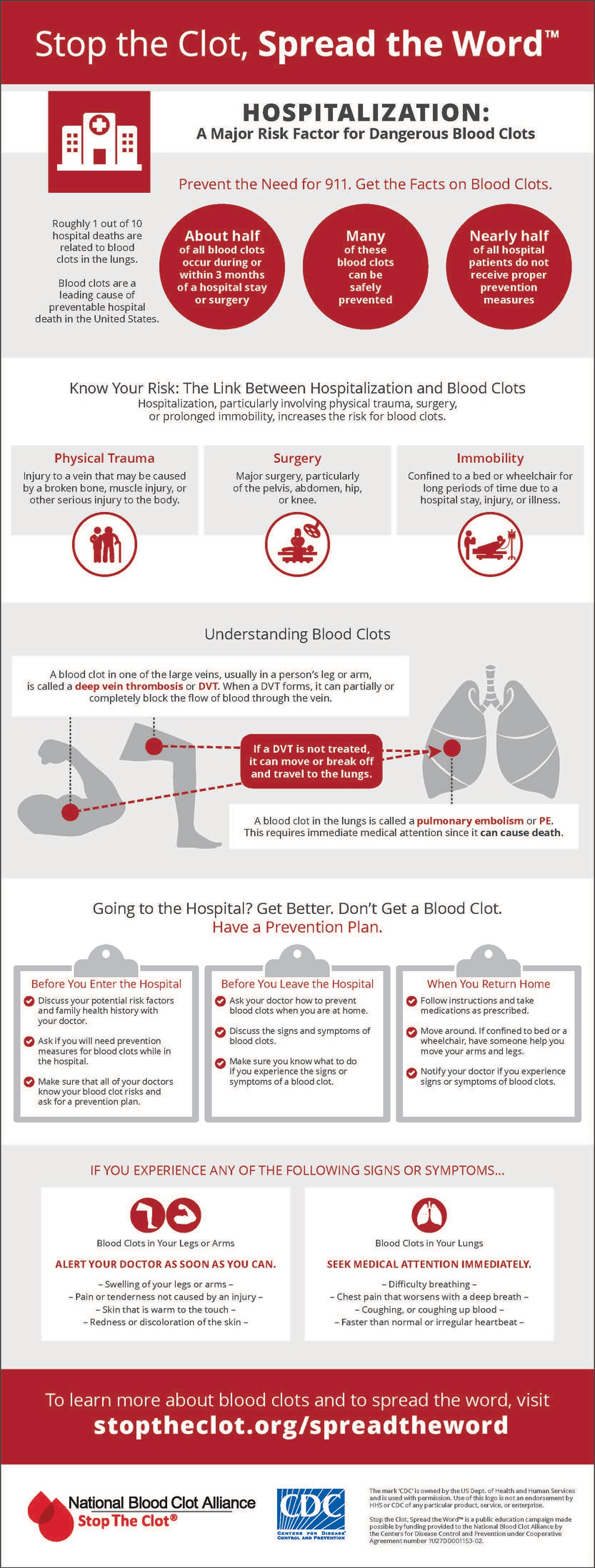
Hospitalization And Blood Clots Cdc

Pin On Patient Information Pages

Deep Vein Thrombosis Deep Vein Thrombosis Treatment Deep Vein Thrombosis Thrombosis
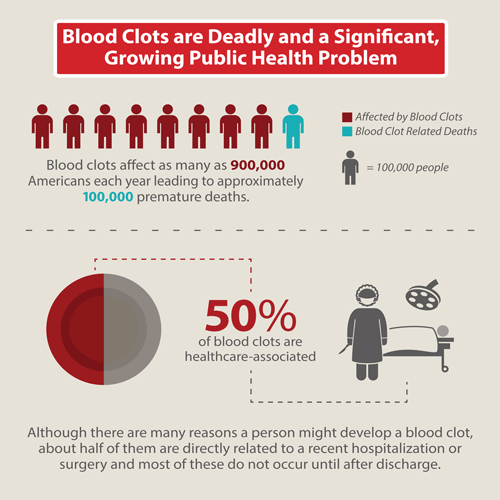
Data And Statistics On Ha Vte Cdc

Dvt And Boating 8 Simple Ways To Minimize Your Risk Dan Boater Vein Thrombosis Deep Vein Thrombosis Thrombosis

The Wound Important Considerations To Understand Knee Replacement Surgery Knee Replacement Total Knee Replacement
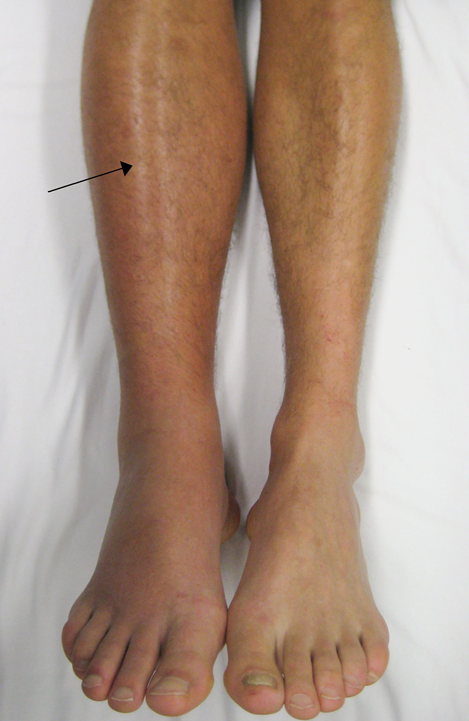
How Do You Know If You Have A Blood Clot After Surgery Center For Vascular Medicine
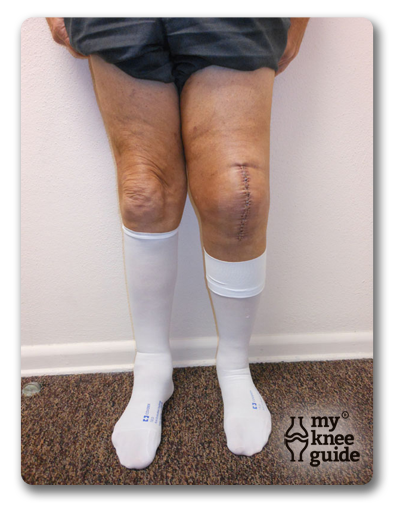
Blood Clots Also Known As A Dvt

Treating Blood Clots Requires Fast Action Mended Hearts

Pin On Varicose Veins Blood Circulation Blood Clots Edema Sepsis Vascular Disease

Dvt Blood Clots The Rane Center For Venous And Lymphatic Diseases At St Dominic S Vascular Endovascular Surgery Seshadri Raju M D F A C S Vascular Surgeon

Deep Venous Thrombosis Aftercare Instructions Care Guide Deep Vein Thrombosis Thrombosis Physiotherapy Clinic

